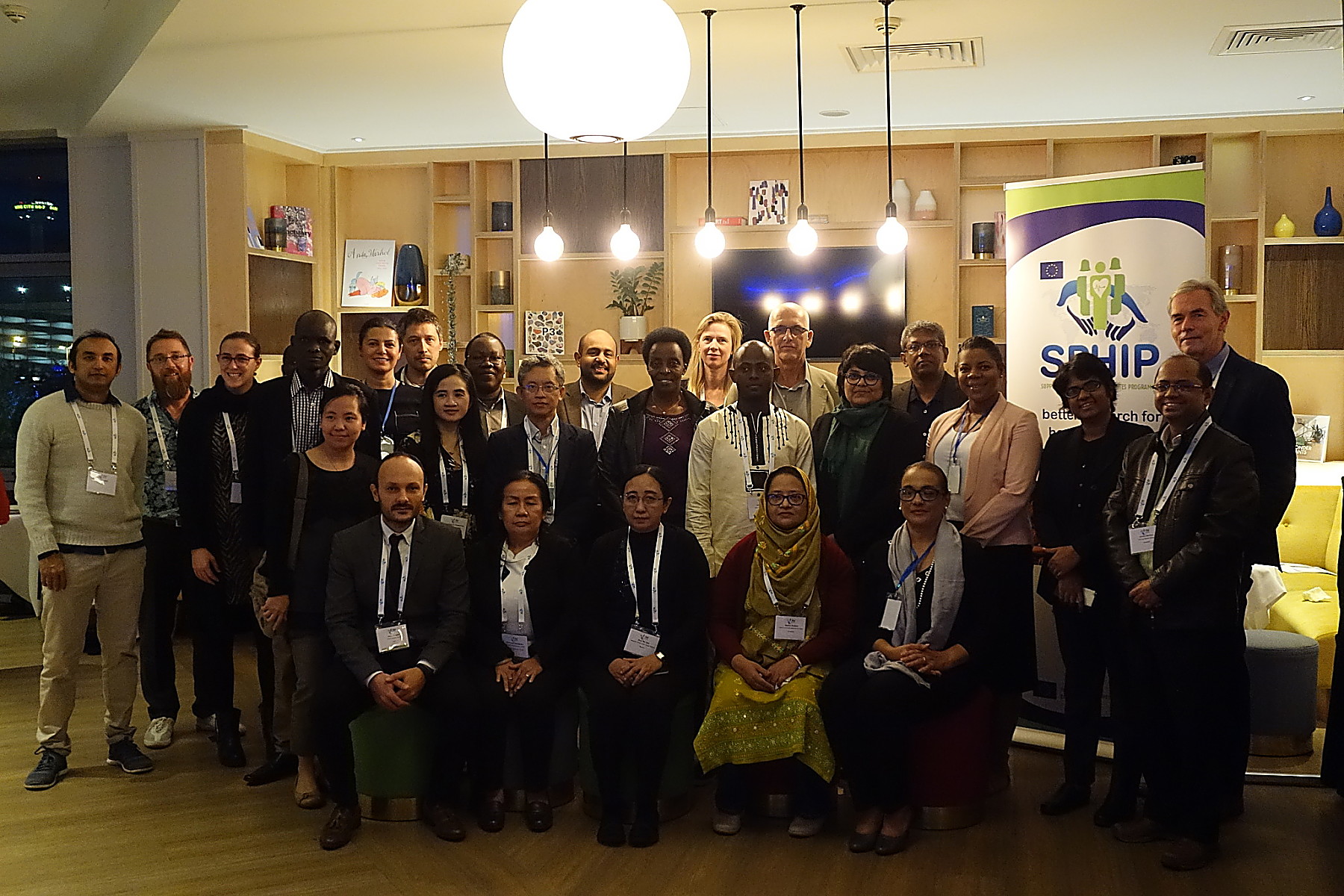Bye, bye SPHIP
Discussion details
The Support to Public Health Institutes Programme (SPHIP) started on 1 January 2015 and was supposed to last for five years until 31 December 2019. However, most projects approved under the SPHIP programme started later, and six of the eight projects got extension from three months to 18 months. By July 2020, five of the eight projects will come to an end. The support team will end its activities in June 2020. Therefore, we say bye, bye SPHIP.
The basic idea of the SPHIP was to make the public health institutes in eight low-income countries stronger, so that they could play a role in advising governments on evidence-informed policies. The idea was that the institutes could show the way in developing universal health coverage and in improving equity in health service delivery and public health. Many different options were available in the programme, ranging from training staff, improving teaching, performing research, developing strategies, and improving organisations in public health. All eight projects used a country-specific mix of these tools.

By and large, the eight projects have succeeded in strengthening the public health institutes. As part of the evaluation, members of the support team have interviewed eight leaders of the beneficiary institutions, who all showed enthusiasm and gratitude of what has been achieved in each of the projects. They feel empowered by what the projects have brought to them. Many institutes have delivered policy advice in policy briefs, or even elaborated strategic plans to their governments. They have innovated Master of Public Health programmes, and trained many health workers, who will reinforce in the health services in their countries.
SPHIP was much more than just strengthening institutes. It created South-South collaboration and triangular learning among organisations in the regions and in Europe. There are some examples where experiences from one low- or middle-income country could be applied in another country. The European Commission has also facilitated annual exchange among leaders of the projects and researchers in beneficiary institutions. This has led to lively discussions, exchanges and mutual country visits to learn from each other. For many people it was an eye-opener how much mutual support organisations in low- and middle-income countries could give to each other.
 In 10 international conferences researchers from the SPHIP supported projects could share their knowledge and experiences widely with the international community of researchers and practitioners. Often SPHIP had common sessions in public health conferences, where projects shared common research and development themes. Those were powerful events, that inspired many international participants in the sessions.
In 10 international conferences researchers from the SPHIP supported projects could share their knowledge and experiences widely with the international community of researchers and practitioners. Often SPHIP had common sessions in public health conferences, where projects shared common research and development themes. Those were powerful events, that inspired many international participants in the sessions.
This newsletter and SPHIP webpage on the Capacity4Dev platform have been places for sharing information on progress, celebrating achievements, discussing challenges. Browsing through the archives gives new inspiration of what has been achieved, and of what more could be done.
We end this SPHIP programme in a new public health era. COVID 19 is giving to all of us, and to every human being on the planet, new challenges. Public health has become more important than ever, and all of the institutes that were empowered by this SPHIP programme, are now tasked by their governments to contribute to solutions. For the support team it is reassuring that we leave you in a stronger position, than when we met you five years ago. We are sure that you will be able to cope with this public health crisis in the countries where you are working, and that together we will be able to guide the health services into a stronger more resilient health system.
We say now bye, bye. It has been a pleasure working with you. We are sure we will meet many of you again in our quest to achieve better health for all.
 SPHIP support team
SPHIP support team
Dr Jaap Koot
Mr Javier Burgos
Ms Lina Brandt

Log in with your EU Login account to post or comment on the platform.